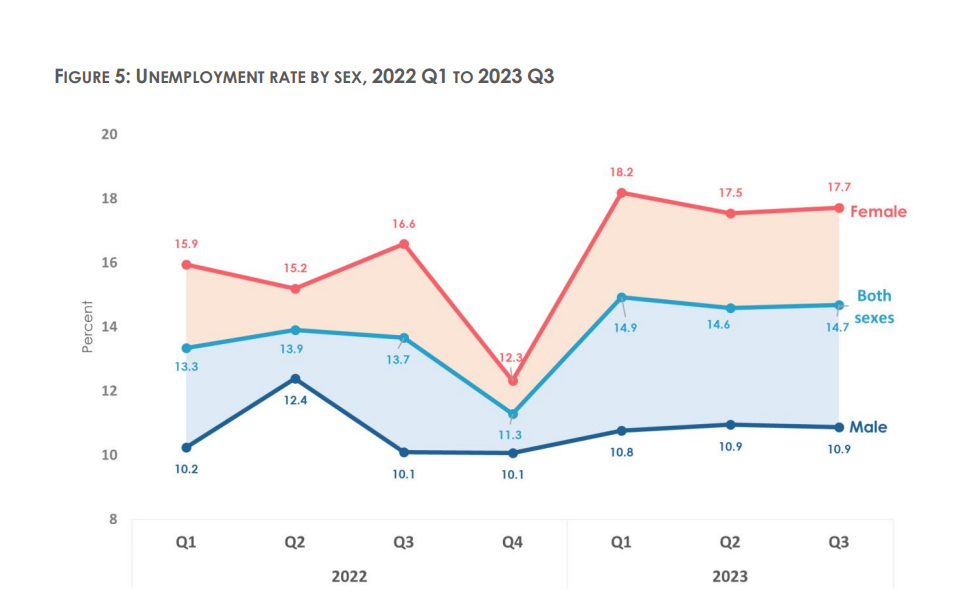
Unemployment is a persistent socioeconomic challenge affecting many developing countries, including Ghana. While industrialization and agriculture have traditionally been at the center of employment policies, the service sector—if strategically developed—offers an equally potent avenue for job creation. This article argues that the Ghanaian government can reduce unemployment by promoting the creation, formalization, and sustained support of service-oriented enterprises. These interventions can catalyze economic inclusion and resilience, particularly among youth and women who dominate the informal economy.
The Service Sector: Definition and Importance
A service is an economic activity that produces value without resulting in the ownership of a tangible product. Services are typically intangible, consumed at the point of delivery, and involve direct interaction between the provider and consumer. Examples include healthcare, education, hospitality, logistics, security, beauty and grooming, catering, and domestic cleaning.
Globally, services constitute a growing share of employment and GDP. In many developing economies, the sector has become a critical absorber of labor, particularly in urban and peri-urban areas. In Ghana, the service sector accounted for approximately 47% of GDP as of 2023. However, a significant portion of this sector remains informal, limiting its full employment potential.
Government-Led Service Creation: Public Enterprises for Job Growth
One way governments can directly intervene is by establishing service-based enterprises or public-private partnerships that deliver essential services while creating jobs. This approach is particularly valuable in areas such as sanitation, public health outreach, maintenance of public infrastructure, and tourism services.
For example, the government could establish municipal cleaning and maintenance agencies staffed by part-time and full-time workers. These workers can be drawn from the unemployed population, trained, and deployed to maintain markets, roads, schools, and hospitals. Because such services often require minimal capital and training, they are well-suited for youth employment programs.
A successful model for this exists in Rwanda’s Umuganda program, which combines civic responsibility with public service delivery, contributing to both employment and national cohesion.
Formalization of Existing Informal Service Providers
A major constraint facing the service sector in Ghana is the dominance of informal service providers. These enterprises often operate outside regulatory frameworks, lack access to finance, and have limited scalability. Formalizing these entities can unleash their potential to contribute meaningfully to employment.
Formalization can involve business registration, access to tax incentives, regulation for quality assurance, and inclusion in national development planning. For instance, local beauty salons, catering services, or freelance security providers can be supported to register as Small and Medium Enterprises (SMEs), access training and microcredit, and comply with health and safety standards.
Formalizing informal service providers has the dual benefit of improving job security for workers and expanding the tax base of the economy. According to the International Labour Organization (ILO), effective formalization strategies must be inclusive, participatory, and accompanied by institutional support to succeed.
Strategic Support for Service Enterprises
Government support should not end at creation and formalization. Service enterprises need continuous investment and policy guidance to thrive. This support can take several forms:
Capacity Building Organizing training programs in customer service, marketing, financial literacy, and digital tools.
Access to Finance Facilitating microcredit schemes, grant programs, and subsidized loans specifically targeting service-based SMEs.
Market Access
Helping service firms participate in procurement processes, exhibitions, and online platforms.
Regulatory Reform Creating a conducive legal and regulatory environment that reduces bureaucratic hurdles for service entrepreneurs.
Support should also be tailored to the specific characteristics and challenges of each service sub-sector. For example, cleaning services may require different regulatory oversight and capital requirements than catering or child care services.
Leveraging Digital Platforms
In the era of digital transformation, technology can play a transformative role in growing the service sector. Mobile applications and online platforms can connect service providers with customers, ensure quality assurance, and streamline payment systems. Platforms like Uber, Glovo, and local startups have shown that digitalization can revolutionize service delivery and employment generation in African contexts.
The government can partner with private sector actors and tech incubators to build or subsidize platforms that aggregate service providers, ensuring they reach wider markets while ensuring standards and accountability.
Policy Implications and Recommendations
To optimize the employment potential of the service sector, the Ghanaian government should consider:
1. Developing a National Service Sector Employment Strategy that aligns with job creation targets in national development plans.
2. Investing in vocational training and certification programs tailored to high-growth service sub-sectors.
3. Creating service sector cooperatives to pool resources, share marketing platforms, and enhance collective bargaining.
4. Engaging stakeholders, including municipal governments, trade unions, and service sector associations, to co-create policies and monitor progress.
Conclusion
The service sector holds significant promise as a driver of inclusive economic growth and employment in Ghana. Through deliberate creation of public service enterprises, formalization of informal providers, and strategic institutional support, the government can unlock this potential. These interventions must be integrated with broader economic policies and grounded in local realities to be effective.
In the next article, we will examine how principles from service management and marketing can enhance the productivity and sustainability of service enterprises, further contributing to employment generation.
Author
Dr. Ibn Kailan Abdul-Hamid
Head of Marketing Department
University of Professional Studies, Accra
[email protected]
The post Harnessing the service sector to reduce unemployment in Ghana first appeared on 3News.
Read Full Story












Facebook
Twitter
Pinterest
Instagram
Google+
YouTube
LinkedIn
RSS